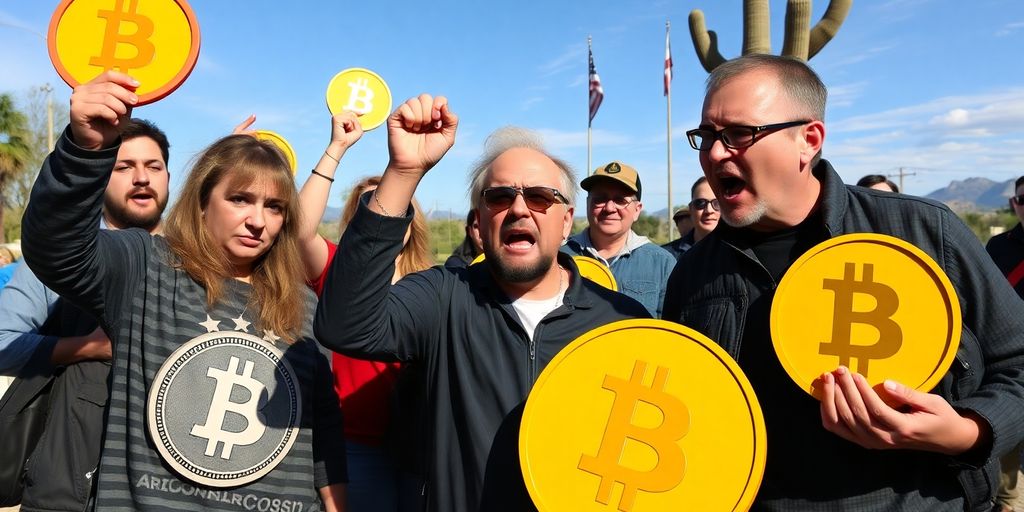Arizona Governor Katie Hobbs has faced significant backlash from Bitcoin enthusiasts and industry leaders following her veto of a bill that would have allowed the state to hold Bitcoin as part of its official reserves. The veto has sparked a heated debate about the future of cryptocurrency in state governance and investment strategies.
Key Takeaways
- Governor Hobbs vetoed the Arizona Strategic Bitcoin Reserve Act, which aimed to allow the state to invest seized funds in Bitcoin.
- Prominent Bitcoin advocates criticized the governor’s decision, calling it ignorant and shortsighted.
- Co-sponsor Wendy Rogers plans to reintroduce the bill in the next legislative session.
- The veto reflects a broader trend of failed cryptocurrency initiatives in several U.S. states.
The Veto Explained
On May 2, Governor Hobbs announced her decision to veto Senate Bill 1025, stating that the Arizona State Retirement System is robust due to its sound investment strategies. The proposed legislation would have permitted the state to create a Bitcoin reserve, utilizing funds seized from criminal activities. Hobbs emphasized the importance of informed investment decisions, suggesting that Bitcoin does not align with the state’s current financial strategy.
Reactions From Bitcoin Advocates
The response from the Bitcoin community was swift and critical. Notable figures in the cryptocurrency space expressed their disappointment:
- Jameson Lopp, co-founder of Casa, remarked on social media that the decision would "age poorly."
- Anthony Pompliano, a well-known Bitcoin entrepreneur, questioned the governor’s understanding of investment, stating, "Imagine the ignorance of a politician to believe they can make investment decisions."
- Andrew Gordon, a crypto lawyer, called for more elected officials who recognize Bitcoin as a significant part of the future.
Wendy Rogers, who co-sponsored the bill, echoed these sentiments, stating, "Politicians don’t understand that Bitcoin doesn’t need Arizona. Arizona needs Bitcoin." She plans to refile the bill in the next legislative session, highlighting that the state’s retirement system already invests in stocks related to Bitcoin, such as Michael Saylor’s Strategy (MSTR).
The Broader Context
Arizona’s attempt to establish a Bitcoin Strategic Reserve was part of a larger trend among U.S. states exploring cryptocurrency legislation. However, similar proposals in states like Oklahoma, Montana, South Dakota, and Wyoming have also faced setbacks, indicating a challenging environment for cryptocurrency initiatives at the state level.
Diverging Opinions
While many Bitcoin advocates criticized the veto, not everyone in the financial community shared their enthusiasm for cryptocurrency investments. Peter Schiff, a prominent skeptic of Bitcoin, supported Hobbs’s decision, arguing that public funds should not be used for speculative investments in cryptocurrencies. This division highlights the ongoing debate about the role of cryptocurrencies in public finance and investment strategies.
Conclusion
The veto of the Arizona Strategic Bitcoin Reserve Act has ignited a passionate response from the Bitcoin community, emphasizing the need for informed governance in the rapidly evolving world of cryptocurrency. As advocates prepare to reintroduce the bill, the future of Bitcoin in Arizona remains uncertain, reflecting broader national trends in cryptocurrency legislation.








